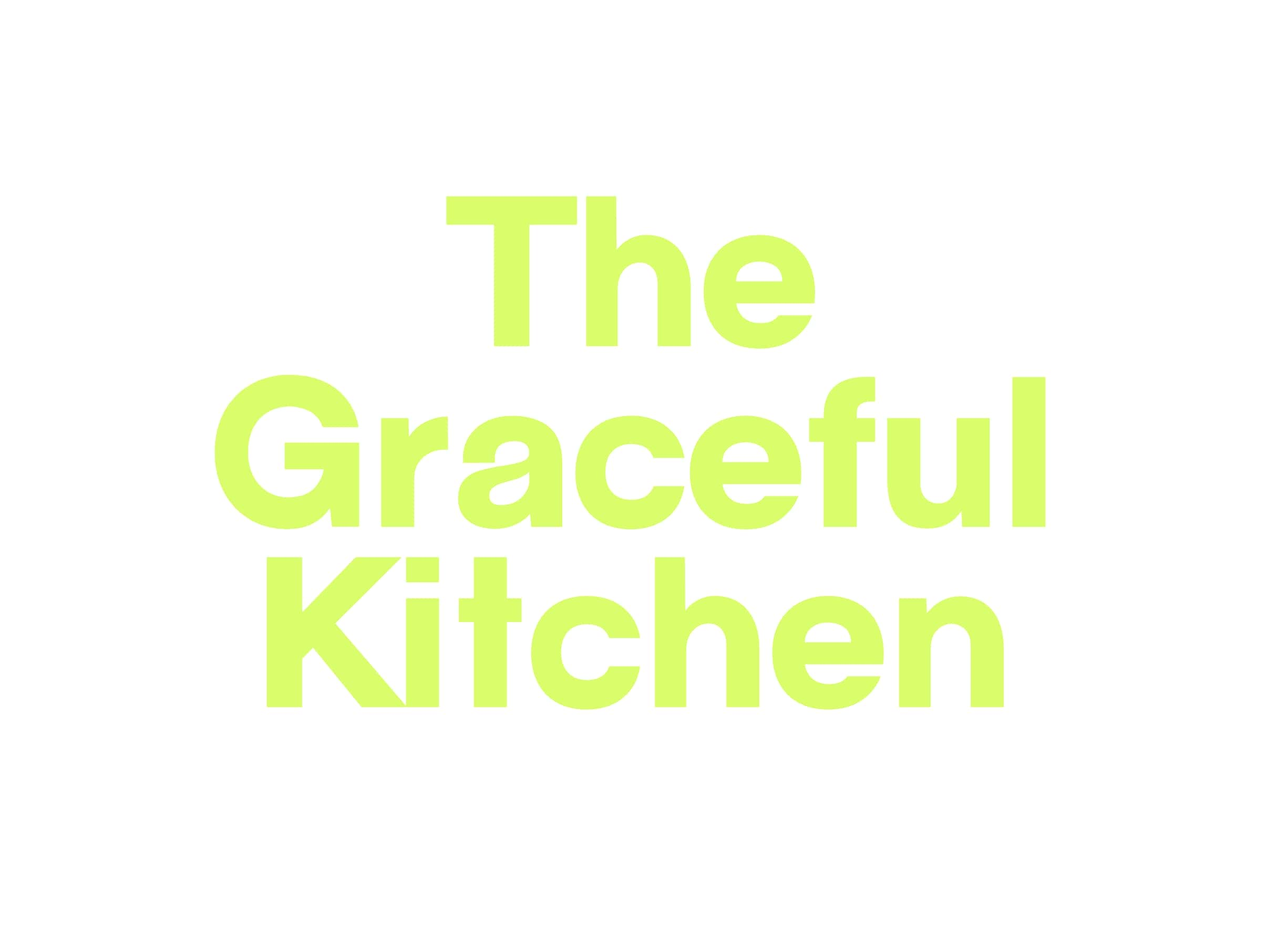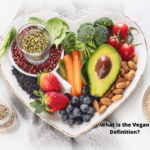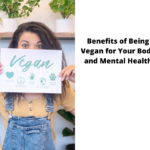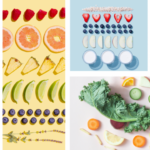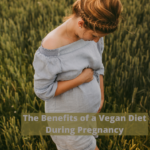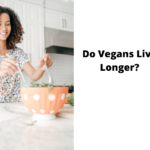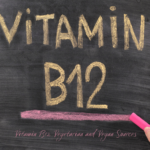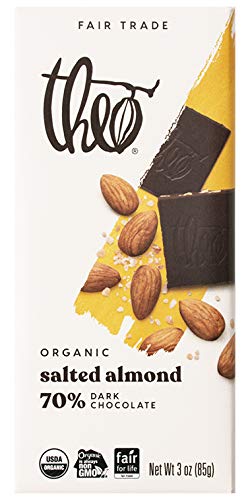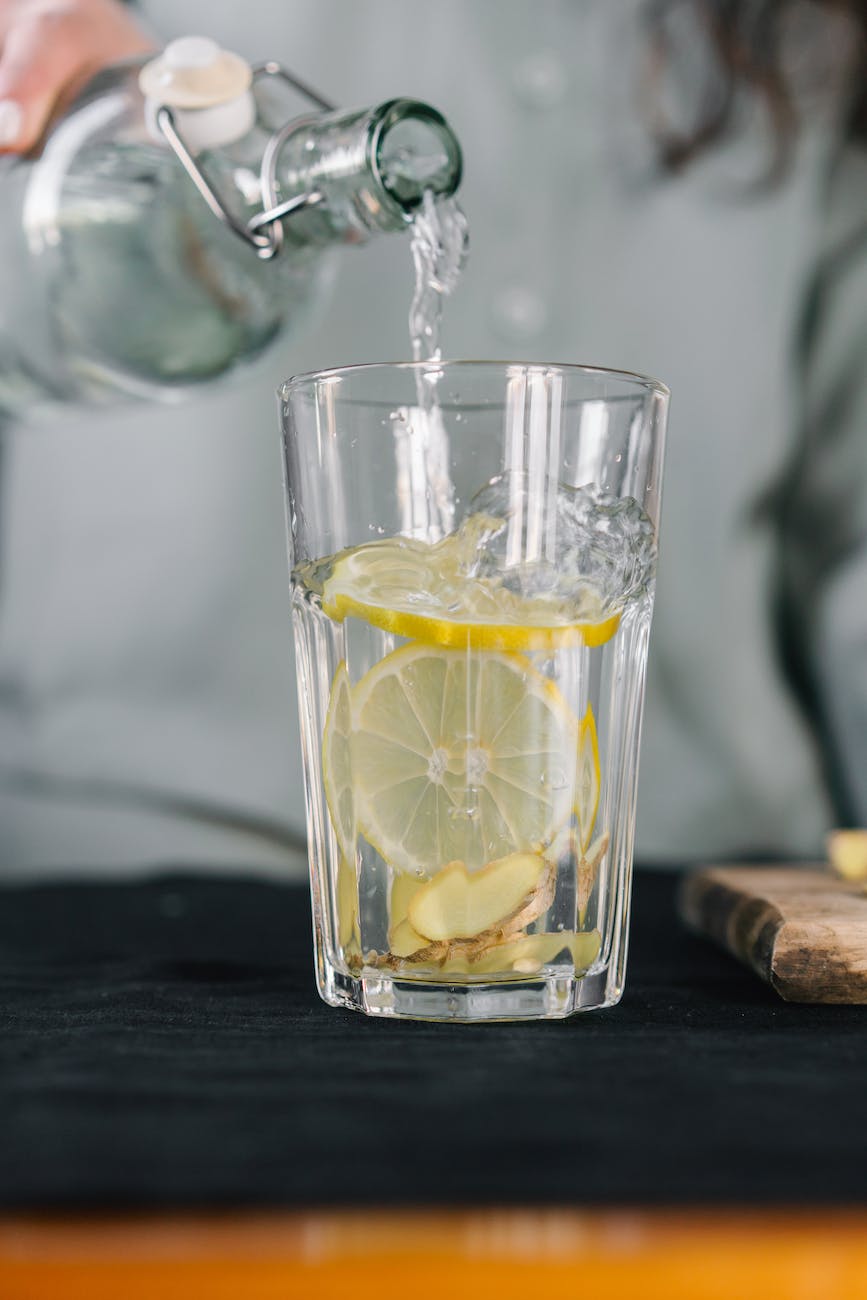Vegan
What Is an Industrial Vegan
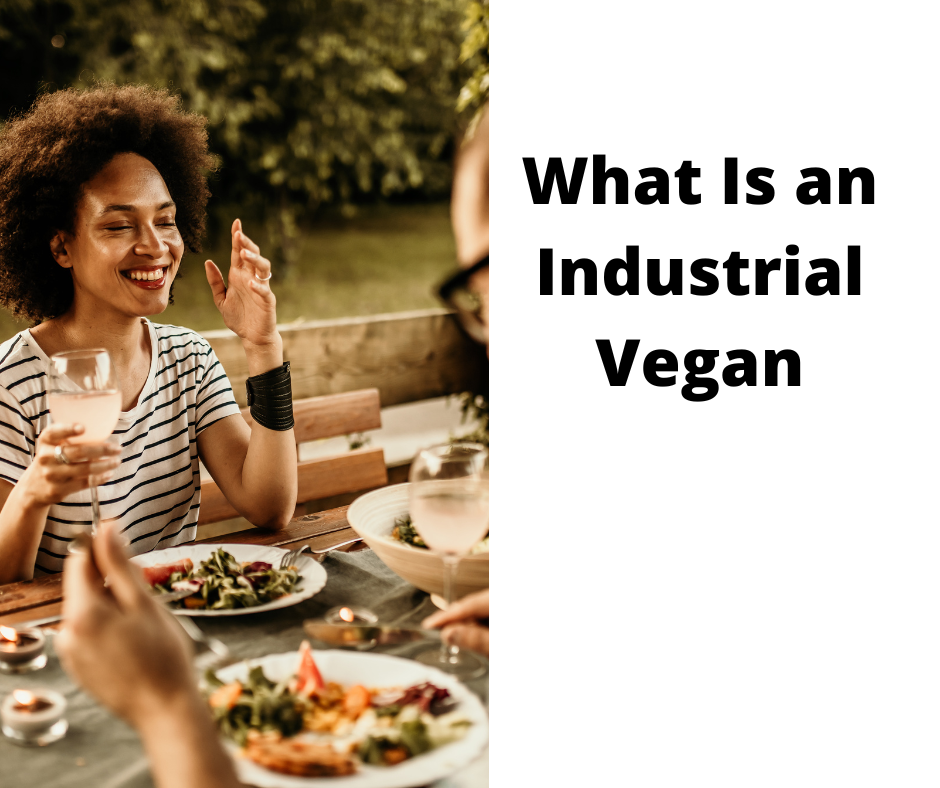
In the world of food selection, a vast array of options exists. For some people, their choices are shaped by personal preferences or beliefs. Others may choose their foods based on the health benefits or the environmental impact of their diet. However, for those who identify as industrial vegans, the main determinant in their decision-making process is driven by economic factors.
Industrial vegans focus on choosing foods that have the lowest environmental impact and require the least amount of resources to produce. This often means choosing plant-based foods over animal-based foods, as raising livestock requires large amounts of land, water, and feed. Similarly, industrial vegans may also choose to avoid heavily processed foods or from large-scale factory farms.
While the term “industrial vegan” is relatively new, the idea behind it is not. Many of the world’s population already practice this type of veganism without even realizing it. For example, someone who only eats rice and beans would be considered an industrial vegan. Or someone who only buys locally grown fruits and vegetables would also fit into this category.
So, whether you’re a strict vegan or simply looking to reduce your environmental impact, remember that you can always make good choices for yourself and the planet. After all, we all have to eat!
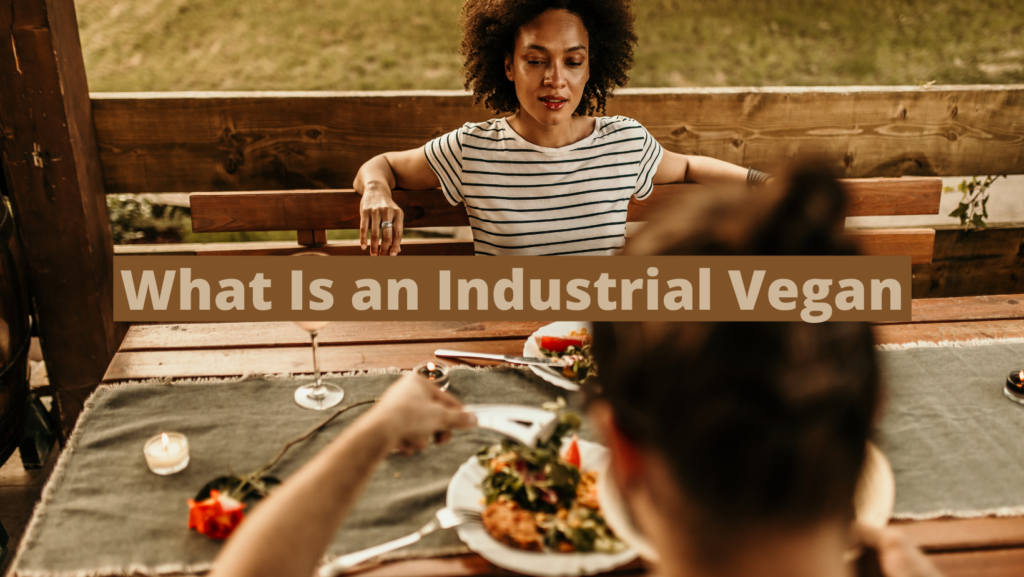
What Is an Industrial Vegan
An industrial vegan does not eat meat, poultry, eggs, or dairy products but consumes other animal-derived products such as honey and leather. While “vegan” was initially coined to refer to individuals who abstain from all animal products, it has since been used to describe various lifestyles and dietary choices.
For some vegetarians, the decision to avoid all animal products is based on ethical concerns regarding the treatment of animals. Others may choose to adopt a vegan diet for health reasons or to reduce their environmental impact. Still, others may simply prefer the taste of plant-based foods. Regardless of their reasons for avoiding animal-derived products, industrial vegans can enjoy a wide variety of delicious and nutritious foods.
The Four Types of Vegan Diet
There are four types of vegan diets, each with its guidelines.
- The Whole-Foods, Plant-Based Diet: As the name suggests, this vegan diet focuses on whole, unrefined, or minimally refined plants. It excludes animal products and highly processed foods such as refined flours, oils, artificial additives, and sugars. adherents of this diet believe that whole plant foods are the healthiest option and offer the most benefits for the individual and the environment.
- The Raw-Foods Diet: This vegan diet consists of raw fruits, vegetables, nuts, and seeds. Some people who follow this diet also eat raw eggs and dairy products, but most do not. The raw-foods diet is believed to be the healthiest vegan diet as it preserves the nutrients in plants better than cooking does.
- The Junk-Food Diet: This vegan diet is also known as the “convenience” or “processed food” vegan diet. It includes processed vegan foods such as frozen pizzas, veggie burgers, and soy hot dogs. While these foods are technically vegan, they are often high in calories, fat, and sodium and low in nutrients.
- The Mixed-Diet: This diet combines the other three vegan diets. People who follow this diet eat a variety of whole plant foods and processed vegan foods. This diet is the most flexible of the four and can be customized to fit the individual’s needs and preferences.
No matter which type of vegan diet you follow, you can get all the nutrients your body needs from plants. However, some vitamins and minerals are more difficult to obtain from plants than others. For this reason, vegans should pay special attention to their vitamin B12, calcium, iron, and omega-3 fatty acids intake. Fortified foods and supplements can help vegans get the nutrients they need.

The Benefits of a Vegan Diet
A vegan diet has many benefits, including reducing the risk of heart disease, obesity, type 2 diabetes, and some types of cancer. Vegans also have a more minor environmental impact than meat-eaters, and they save money on groceries. Most importantly, following a vegan diet allows people to be more compassionate by reducing the demand for animal products.
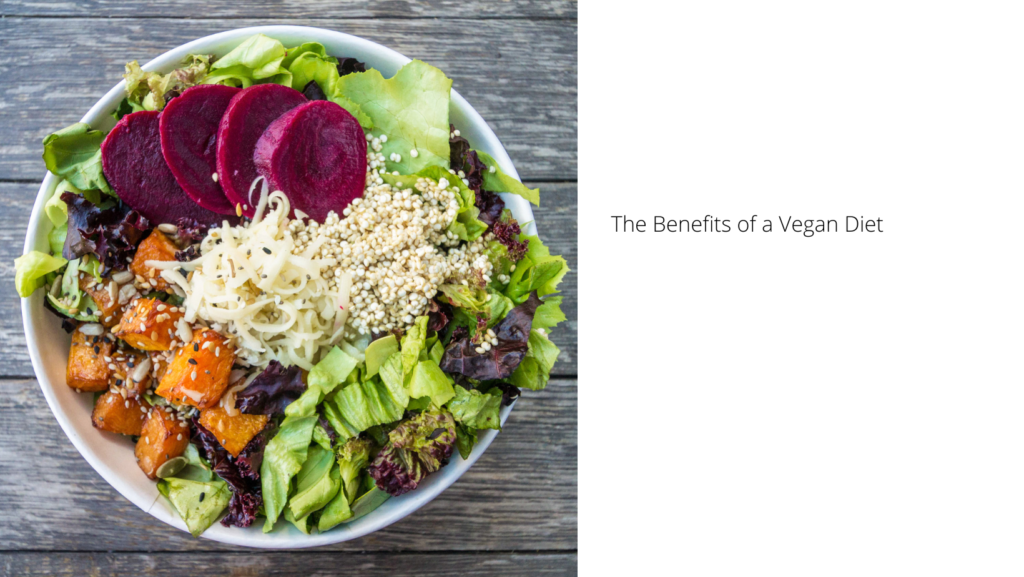
There are many benefits to following a vegan diet.
- Vegans tend to be healthier than meat-eaters. They have lower rates of heart disease, obesity, type 2 diabetes, and some types of cancer.
- A vegan diet is better for the environment than a meat-based diet. Animal agriculture is a leading cause of deforestation, water pollution, and greenhouse gas emissions.
- A vegan diet can save you money. Plant-based foods are generally cheaper than animal-based foods.
- A vegan diet allows you to be more compassionate. Avoiding animal products can help reduce their demand and prevent animals from being raised inhumanely for food.
Ethically-Driven, Religious, Health Vegans
With the increased popularity of veganism in recent years, there has been a corresponding rise in the number of vegans who adhere to the lifestyle for ethical reasons. Ethically-driven vegans believe it is morally wrong to exploit and kill animals for food, clothing, or other purposes.
They often cite that animals are sentient beings who experience pain and suffering, and we have no right to cause them unnecessary harm.
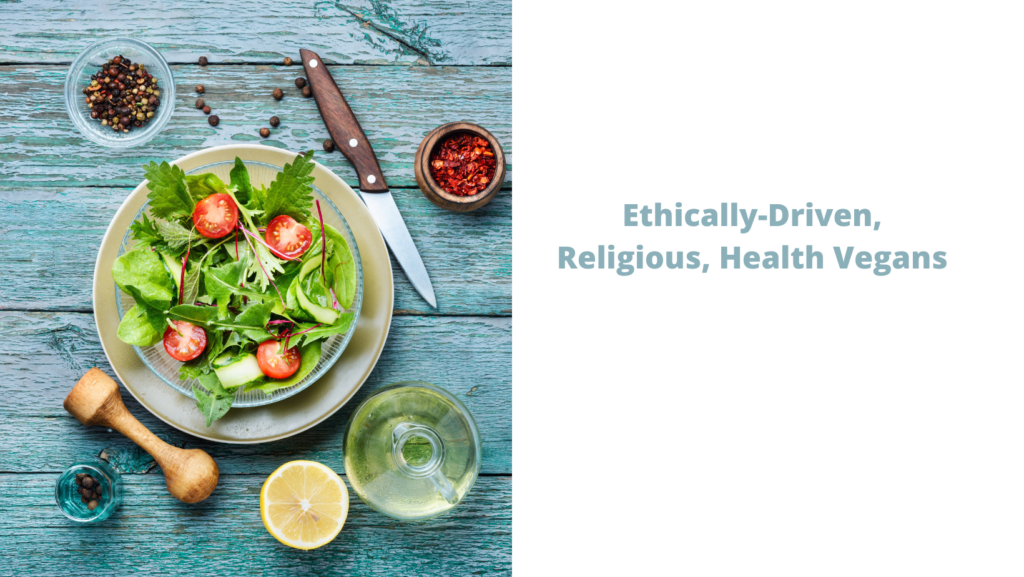
Religious vegans also follow a vegan lifestyle out of respect for all life forms. For them, it is a question of compassion and honoring the divine spark within all creatures.
On the other hand, healthy vegans believe that a plant-based diet is the most beneficial way to eat. They point to the benefits of eating fruits and vegetables, including lower heart disease and cancer rates. whatever their motivations, all vegans can agree that a plant-based diet is kinder to animals, better for the environment, and healthier for humans.
Ethically-Driven Vegans
Ethically-driven vegans believe it is morally wrong to exploit and kill animals for food, clothing, or other purposes.
They often argue that animals are sentient beings who experience pain and suffering. As such, we have no right to cause them unnecessary harm.
The animal rights movement is about more than just food for these vegans. It’s about rejecting the notion that animals are property and should be treated.

Religious Vegans
Religious vegans follow a vegan lifestyle out of respect for all life forms. For them, it is a question of compassion and honoring the divine spark within all creatures.
Many religions have teachings that support veganism, including Buddhism, Hinduism, Jainism, and Rastafarianism.
Some Christians also choose to be vegan, citing passages from the Bible that promote compassion for all creatures.
Healthy Vegans
Health-conscious vegans believe a plant-based diet is the most beneficial way to eat. They point to the benefits of eating fruits and vegetables, including lower heart disease and cancer rates.
These vegans often follow a vegan diet for preventive health reasons. They believe that a plant-based diet can help them avoid future health problems.
Whatever their motivations, all vegans can agree that a plant-based diet is kinder to animals, better for the environment, and healthier for humans.
The Challenges of Being an Industrial Vegan
The vegan movement has been gaining momentum in recent years as more and more people are choosing to avoid animal products for ethical or environmental reasons.
However, living a vegan lifestyle can be challenging, especially for those who live in industrial societies. Finding vegan-friendly food can be difficult, as many processed foods contain animal products or by-products. In addition, vegans often have to contend with social pressure to eat meat or dairy, making dining out or attending social gatherings challenging. Despite the challenges, many people choose to live a vegan lifestyle. By doing so, they are helping to reduce animal suffering, protect the environment, and promote a more sustainable way of life.
What Do Industrial Vegans Eat?
Industrial vegans are a growing subgroup of vegans who seek to avoid animal products and those produced using intensive farming practices. While the definition of an industrial vegan diet varies, it generally includes avoiding meat, dairy, eggs, and honey, as well as any foods that contain animal-derived ingredients such as gelatin or rennet.
Additionally, many industrial vegans avoid eating fruits and vegetables grown using pesticides or other synthetic chemicals. Instead, they opt for organic produce or certified fair trade items. In some cases, industrial vegans may also eat only locally sourced foods to minimize their environmental impact. While an industrial vegan diet requires a bit more effort to follow, it can be rewarding to live more lightly on the planet.
What’s the Point of An Industrial Vegan Diet?
The industrial vegan diet is a way of eating that seeks to avoid animal products and those produced using intensive farming practices. This type of diet aims to reduce the suffering caused by animal agriculture and promote a more sustainable way of life.
Living an industrial vegan lifestyle can be challenging, but it has many rewards. Following this diet can help reduce animal suffering, protect the environment, and promote a more sustainable way of life.
What’s the Difference Between Vegan and Industrial Vegan?
The main difference between vegan and industrial vegans is that vegans seek to avoid all animal products, while industrial vegans also seek to prevent those produced using intensive farming practices. Industrial vegans eat organic produce and locally sourced foods to minimize their environmental impact. While both lifestyles have their challenges, they offer different rewards.
Vegans vs. Industrial Vegans
The vegan movement has been gaining momentum in recent years as more and more people are choosing to avoid animal products for ethical or environmental reasons. The industrial vegan diet is a way of eating that seeks to avoid animal products and those produced using intensive farming practices. This type of diet aims to reduce the suffering caused by animal agriculture and promote a more sustainable way of life.
Living a vegan lifestyle can be challenging, but it has many rewards. Following this diet can help reduce animal suffering, protect the environment, and promote a more sustainable way of life. However, living a vegan lifestyle can be challenging, especially for those who live in industrial societies.
Finding vegan-friendly food can be difficult, as many processed foods contain animal products or by-products. In addition, vegans often have to contend with social pressure to eat meat or dairy, making dining out or attending social gatherings challenging. Despite the challenges, many people choose to live a vegan lifestyle. By doing so, they are helping to reduce animal suffering, protect the environment, and promote a more sustainable way of life.
Benefits of Being an Industrial Vegan
Industrial vegans are people who consume a vegan diet but also use products that contain animal-derived ingredients. While this might seem contradictory, there are many benefits to being an industrial vegan.
For one thing, it is much easier to find vegan-friendly products than in the past. Thanks to the growing popularity of veganism, many companies now offer plant-based alternatives to animal-derived products. This makes it possible for vegans to enjoy various foods and products without compromising their ethical values.
Additionally, by consuming animal-derived products produced in an industrial setting, vegans can help reduce the demand for these items. In other words, being an industrial vegan can help create a market for cruelty-free products and encourage companies to produce more of them. In this way, you can indirectly promote veganism and make it easier for others to adopt this lifestyle.
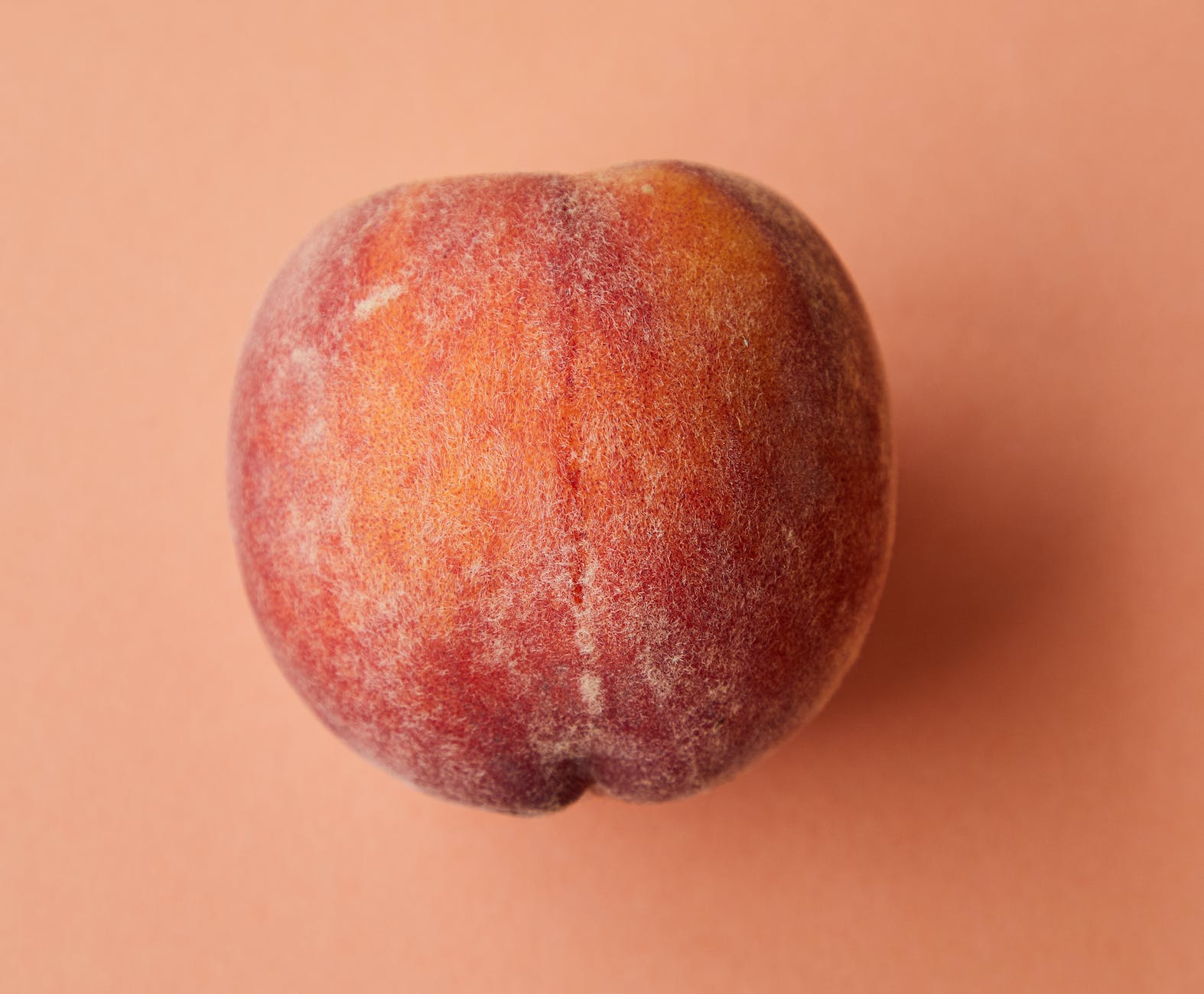
Educate Yourself About the Benefits of A Vegan Diet
A vegan diet excludes all animal products, including meat, poultry, fish, eggs, and dairy. While there are many different reasons why people choose to follow a vegan diet, the most common cause is ethical concerns regarding the treatment of animals.
However, a vegan diet can also have numerous health benefits. Studies have shown that vegans have lower rates of obesity, heart disease, and type II diabetes. They also tend to consume more vitamins and minerals and fewer unhealthy fats than those who eat animal products.
In addition, a vegan diet can help reduce the environmental impact, as it requires less land and water to produce vegetables than it does to raise livestock. For those wondering whether a vegan diet is right for them, the best way to find out is to educate themselves about the benefits and drawbacks of such a lifestyle.
Connect with Other Vegan-Minded People
Being vegan is about more than just what you eat. It’s a lifestyle choice that encompasses everything from the food you put in your body to the products you use to the way you treat animals.
If you’re interested in connecting with other like-minded people, there are a few different ways to go about it. One option is to join a local vegan meetup group. This can be a great way to make new friends and explore new restaurants and recipes.
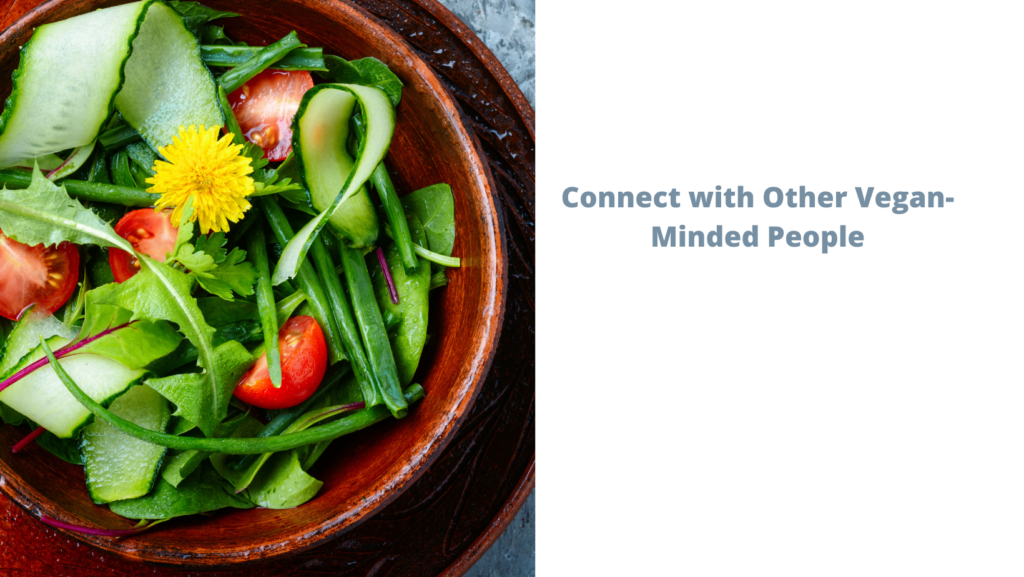
Another option is to search for vegan-friendly businesses in your area. Many cities now have vegan bakeries, grocery stores, and clothing boutiques. By supporting these businesses, you’ll not only be helping to promote veganism, but you’ll also be meeting other vegans who share your values.
Ultimately, don’t forget that there’s always the online world. There are numerous forums, groups, and websites devoted to veganism, so no matter where you live, you can always find a supportive community of like-minded individuals.
Find Vegan-Friendly Foods and Recipes
The number of people following a vegan diet has risen exponentially in recent years, and for a good reason. A vegan diet has been shown to have numerous health benefits, including lower cholesterol levels and a reduced risk of heart disease.
But following a vegan diet can also be challenging, especially when finding vegan-friendly foods and recipes. Thankfully, there are more resources than ever for those looking to go vegan. There are cookbooks devoted explicitly to vegan cuisine and websites and apps that offer delicious and easy-to-make vegan recipes.
In addition, many grocery stores now carry a wide variety of vegan-friendly products, making it easier than ever to find everything you need to make tasty and nutritious vegan meals. Whether you’re considering going vegan or are already following a plant-based diet, plenty of resources are available to help you make the transition.
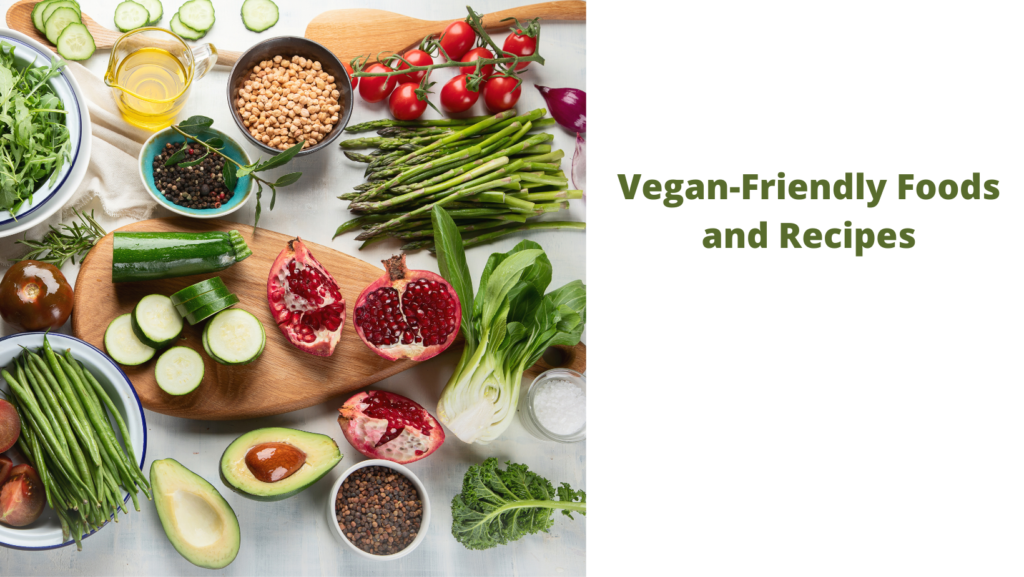
How Long Does Vegan Cheese Last?
Vegan cheese is a dairy-free alternative to traditional cheese. It is made from plant-based ingredients, such as nuts, soy, or coconut milk. While vegan cheese does not have the same taste or texture as regular cheese, it can be a good option for those who are lactose intolerant or following a vegan diet.
So, how long does vegan cheese last? Unopened packages of vegan cheese can last for up to two months in the fridge. Once opened, the cheese should be used within seven days. If you notice any changes in color or texture, it is best to discard the cheese. Vegan cheese can be a delicious and nutritious addition to your diet when stored properly.
Are Impossible Sliders at White Castle Vegan?
The answer is no; the current recipe for White Castle’s Impossible Sliders is not vegan. The patties are made with whey protein, a dairy product, and the buns contain egg whites.
However, making a vegan slider using the Impossible Burger patty is possible. Simply order your burger without cheese and ask for it on a lettuce bun.
Although it’s not on the menu, White Castle has indicated they are willing to accommodate special requests. So, if you’re craving a slider but don’t want to consume animal products, be sure to ask for the vegan version next time you visit White Castle.
Are Fries at White Castle Vegan?
Are Fries at White Castle Vegan? Here is the answer: as of 2019, White Castle’s classic fries are no longer vegan. They switched to a new fryer oil that contains beef fat. However, their new “Savage Fries” are vegan. They are cooked in avocado oil and seasoned with a savory blend of spices. So, if you’re craving some fries from White Castle and you want to stick to a vegan diet, be sure to order the Savage Fries.
Who Was the Hustler Industrial Vegan?
“Industrial veganism” was brought up on ‘The Hustler’ by late-night talk show host Ken Jeong.
Is Craig Ferguson Still Vegan?
In 2019, Ferguson returned to his native Scotland. He is a vegan (having declared in 2016 that he had been vegan for almost three years) and a recovering alcoholic, so he consumes neither meat nor alcohol.
What Is a Level 5 Vegan?
Level 5 vegans have been recognized for their dedication to the vegan lifestyle and are frequently referred to as “extreme vegans.” Level 5 vegans make extraordinary efforts to comply with a vegan lifestyle that is free of any use of animal products or animal exploitation.
Is Rice Considered Vegan?
Vegan foods are the cheapest in the world, including legumes, rice, potatoes, certain veggies, and more. Of course, you can have expensive vegan food; you don’t have to, and you don’t need to be healthy.
What is the most extreme form of veganism?
Fruitarianism is a diet that can be traced to veganism and consists of eating fruits, possibly nuts and seeds, but no animal products. Fruitarian diets are controversial and have health issues.
Conclusion
An industrial vegan takes their veganism further than the average vegan by making extraordinary efforts to live a lifestyle that does not involve animal exploitation. This includes avoiding all animal products, including honey and leather. Industrial vegans are often referred to as “extreme vegans.” While the fruitarian diet is the most extreme form of veganism, it is also the most controversial and has health issues.
Industrial Vegan FAQ
What is an industrial vegan?
An industrial vegan is a term used to describe a person who follows a vegan lifestyle but also uses animal products for their benefit. For example, an industrial vegan might wear leather shoes or use beeswax candles. This type of veganism is controversial because it goes against the core values of veganism, which is to avoid all forms of animal exploitation.
What are the benefits of being an industrial vegan?
There are a few benefits of being an industrial vegan. First, it allows you to enjoy some animal products still while adhering to a vegan lifestyle. Second, it can be cheaper than following a strict vegan diet since you don’t have to purchase all-new products. Finally, sticking to an industrial vegan lifestyle can be easier since you don’t have to give up all of your favorite foods and products.
What are the drawbacks of being an industrial vegan?
The biggest drawback of being an industrial vegan is that it goes against the core values of veganism. This veganism is also controversial and not widely accepted by the vegan community. Additionally, it can be challenging to find animal-free versions of some products, such as leather goods or beeswax candles.
Aurelia is the Editor-in-Chief of The Graceful Kitchen, a vegan lifestyle blog that focuses on delicious, nutritious, and ethical eating. A lifelong vegan, Aurelia is passionate about sharing her love of plant-based cuisine with others. She is a regular contributor to several online and print publications, and has been interviewed by major news outlets about the benefits of a vegan diet. In her free time, Aurelia enjoys cooking, hiking, and spending time with her cats.
Vegan
Tips For a Vegan PCOS Diet

Here are the basics of a vegan PCOS diet. It is important to consider a few factors when choosing a vegan diet. Remember that protein is often derived from animal products. If you are not getting enough protein from plant-based sources, it is recommended to take supplements. Other important things to keep in mind are to make sure you are consuming enough protein and healthy fats, maintaining a healthy weight, and regulating androgen levels.
Getting enough protein
If you have PCOS, it is crucial to get enough protein in your diet to support the disease. A vegan diet can help reduce the body’s production androgens. This can lead to hair loss, acne, and other symptoms. It can also protect you against other conditions associated with PCOS such as type 2 diabetes or heart disease. There are many things to consider when you decide to eat vegan.
A study published in 2017 found that a diet rich in omega-3s and fiber is beneficial for people with PCOS. Vegans can easily meet these guidelines by including these fats regularly in their diets or supplementing them. They must ensure they get enough protein to maintain their weight.
Plant-based protein sources can be found in many places and are a good source for fiber and B vitamins. For example, kidney beans are an excellent source of protein, with 13.4 grams per cup. Peas, black beans, pinto beans, navy beans, and peanuts are also high in protein.
The average American consumes far more protein than they need. This is because animal-based protein are less efficient and more costly than plant-based proteins. The average UK person consumes 64 grams of protein per day, which is sufficient. It is important to not exceed the recommended daily intake as it can cause side effects.
Many vegetarians and vegans eat more protein than they should. They consume way more than recommended amounts of fibre and micronutrients. There are some foods that are not suitable for vegans with PCOS. Soy is one example. It has very few health benefits and it’s not very tasty.
Getting enough good fats
Eating a diet low in carbohydrates and high in good fats can help people with PCOS. This diet is recommended for people with the disorder, according to a 2017 study. This diet should be low in saturated fat and high in omega-3 fatty acids. It should also include foods rich in fiber. Vegans can follow these guidelines by including omega-3 in their diet regularly and taking supplements containing these fatty acids.
People with PCOS can benefit from a vegan diet. This is because it reduces the production of excess androgens which are the main cause of their symptoms. In addition, a vegan diet may protect the body against conditions related to PCOS, including heart disease and type 2 diabetes. While a vegan diet can be confusing, it is important to understand the benefits of a vegan diet.
Managing weight
The latest research suggests that a vegan diet can be beneficial for PCOS patients. This dietary plan includes low levels of saturated fats and high fiber, as well as plenty of omega-3s. Vegans can meet these guidelines by regularly including these omegas in their diet or taking supplements.
This is because it helps regulate insulin levels, which is crucial for controlling blood sugar. While this diet may not be suitable for women who are overweight or obese, it can help them lose weight while improving their condition. This diet has been shown to improve blood sugar control and reduce insulin resistance, making it an option for women with PCOS.
Another benefit of a vegan diet is that it reduces cholesterol and inflammation. High levels of cholesterol are closely linked to PCOS. A vegan diet is rich in essential nutrients and fiber, which can help lower LDL cholesterol levels and improve symptoms. It can also improve gut flora and balance hormones.
Managing androgens
It is important to manage androgens in vegan PCOS sufferers. Although excessive androgen levels can lead to a host of problems, they can also help normalize other hormone levels. Excessive androgens can cause irregular menstrual cycles and excess facial hair.
PCOS symptoms can be reduced by making lifestyle changes. One way to do this is to reduce grains and processed foods. This will allow the body to respond to insulin more efficiently, which lowers androgens. Another way to help regulate testosterone levels is by increasing foods rich in natural anti-androgens.
Soy contains phytoestrogens and isoflavones, which help to control androgen levels. Soy, found in soya products, significantly reduces testosterone levels. However, it’s important to purchase soy products from a traditional Korean store as soy contains harmful chemicals and should be avoided.
Hi, I’m Alexander. I’m a vegan of over 20 years, and I initially made the switch for health reasons. However, as time went on, I became more and more passionate about the ethical and environmental implications of leading a vegan lifestyle.
I am the author of The Graceful Kitchen, a vegan blog where I share recipes for delicious and nutritious vegan meals. As someone who is deeply committed to living a cruelty-free life, I am also a strong advocate for using whole foods as the foundation of a healthy diet – and believe that going vegan is one of the best ways to achieve this.
Vegan
Veganism and Hair Loss

Many people are concerned about the link between a vegan diet and hair thinning. However, research on this topic has not yielded definitive answers. While a study suggested that vegetarians may have less robust hair compared to meat-eaters, the results were not statistically significant. A dermatologist specializing in hair thinning reassured that this connection should not be a cause for worry. According to Zeichner, there is no evidence to suggest that dietary restrictions lead to hair loss.
Storage Iron Levels Are Reduced
Iron is a mineral that plays an essential role in the growth of hair. Iron helps red blood cells to form hemoglobin which carries oxygen to hair follicles. However, vegans and vegetarians have lower iron stores, making it imperative that they eat foods high in iron.
Iron deficiency is a common problem for both men and women, especially after menopause. Iron deficiency can increase the risk of hair loss in some people. Blood tests are the best way to determine if you have iron deficiency. Your doctor can determine if you have iron deficiency by checking your hemoglobin and hemocrit levels. Fortunately, iron deficiency is largely treatable.
Vitamin B12 Deficiency
Vitamin B12, also known as cobalamin, can be found in the body and is essential for many nutrient processes. It aids in processes like DNA replication and cellular metabolism. It is also needed for red blood cell formation. A deficiency of this vitamin can lead to a wide range of symptoms, including hair loss. To prevent hair loss, it is important to consume the recommended daily amount of vitamin B12.
Hair loss may also be a sign of an iron deficiency. Vitamin B12 is important for the health of nerve cells, as it plays an important role in cell formation. The human body cannot produce vitamin B12, so it must get it from animal sources. Luckily, some breakfast cereals are fortified with this vitamin. Those who follow a strict vegan diet are more likely to suffer from a vitamin B12 deficiency than other people.
Vegans who are concerned about hair loss may want to consider adding more vitamin B12 to their diet. Soy products are a good source of vitamin B12, as they contain large amounts of the vitamin. However, vegans should note that there are no significant amounts of this vitamin in oily fish and meat. Fortified soya milk is one way to supplement your diet with this nutrient.
Changing your diet to a vegan one does not cause permanent hair loss. This can be prevented by eating a varied diet rich in nutrients. A well-balanced vegan diet is more important than any supplement or food plan.
Vitamin B12 is a vital vitamin that the body requires to function properly. A vitamin B12 deficiency can affect anyone. The symptoms of a deficiency may take many years before they become obvious. It is possible to overcome a deficiency if you are aware of what foods to eat and how much. It is possible for vegetarians and vegans to be deficient in vitamin B12 but this is rare.
Iron Deficiency Anemia
Vegans may be concerned about iron levels because they haven’t eaten enough animal products. This can lead to anaemia. Vegans can still eat foods rich in iron or vitamin B12. These foods are high in iron and antioxidants. These foods can be eaten to help vegans fight anemia.
Iron is abundant in dark green leafy vegetables. In fact, a hundred grams of spinach contain more iron than a hundred grams of red meat or chicken. These vegetables can be added to salads, smoothies, and soups, or even cooked in curries. Other vegetables rich in iron include broccoli and Brussels sprouts.
Women of reproductive age are at risk for iron deficiency and anemia. This condition is more common in women who eat vegetarian and vegan diets. This is partly due to the caloric restrictions that vegans and vegetarians eat.
While studies have shown that vegans are not at higher risk of developing iron deficiency anemia than the general population, some studies indicate that vegans may have lower levels of iron. Choosing the right food sources, however, is important for preventing anemia. Vegans can take iron supplements in addition to eating iron-rich plant foods. These iron supplements are often prescribed for anemia patients.
A well-balanced vegan diet can be beneficial for iron deficiency, as long as it includes foods rich in vitamin C. Vitamin C boosts the absorption of iron by up to five times. Vitamin B12 and vitamin B6 also boost iron bioavailability.
While most vegetarians and vegans have sufficient iron, pregnant women may be at greater risk of anemia. They have higher iron needs during this period due to their menstruation. For this reason, it is recommended that female vegans and vegetarians be monitored closely for iron deficiency anemia.
Iron deficiency is a condition that can cause fatigue and lightheadedness. It can also cause heart problems and can affect pregnancy.
Reduced Soy Intake
Soy is one of the most nutritious foods available. Soy is high in protein, which is essential for healthy hair. However, some studies have shown that soy may exacerbate hair loss and other conditions, so reducing your soy intake may be helpful for you. Soy is the general term for any product made from soybeans, the seeds of the Glycine max plant. It was first developed in China, and has since been widely spread around the globe.
Soy isoflavones are estrogenic and goitrogenic, so it can be beneficial to limit your soy intake. It can also cause hair loss by affecting your thyroid. While soy is present in a limited quantity in the Japanese diet, it is ubiquitous in the United States. Soy milk, soy hotdogs, and many other soy products have replaced red beef in American diets. Although the effects may be minimal, the hormones in soy can affect the health of your hair and the health of your thyroid gland.
Research shows that soy isoflavones may alter the metabolism of testosterone in men. They also inhibit the 5-alpha-reductase enzyme that converts testosterone into dihydrotestosterone. This disruption disrupts the normal cycle of hair growth. There is no evidence to suggest that soy can help you grow hair.
Soy may help prevent hair loss. It is also healthier and cheaper than surgery and prescription drugs. Most people in North America, Western Europe and Asia do not allow soy products to be consumed. Despite this, supermarket shelves are stocked with soy-based foods as well as commercial products. Studies show that 79% of edible fats in the body are from soy.
Although soy may not prevent hair loss, it is an important part to a healthy diet that can provide nutrients for your entire system. Soy is a healthy option for both men and women. Soy is a good source of protein and can be an important part of your diet.
Hi, I’m Alexander. I’m a vegan of over 20 years, and I initially made the switch for health reasons. However, as time went on, I became more and more passionate about the ethical and environmental implications of leading a vegan lifestyle.
I am the author of The Graceful Kitchen, a vegan blog where I share recipes for delicious and nutritious vegan meals. As someone who is deeply committed to living a cruelty-free life, I am also a strong advocate for using whole foods as the foundation of a healthy diet – and believe that going vegan is one of the best ways to achieve this.
Vegan
Vegan Lindt Chocolate
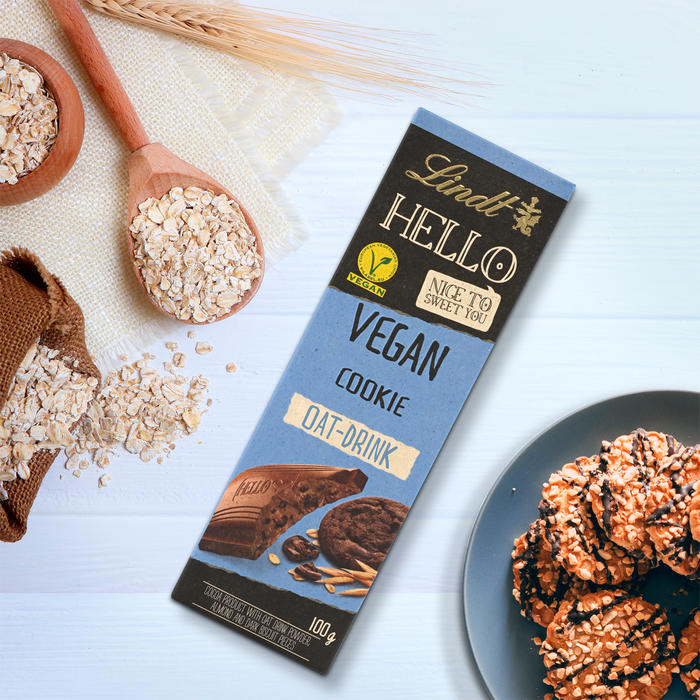
Lindt’s vegan chocolate is a great option for chocolate lovers who prefer to avoid animal ingredients. It contains 48% cocoa, along with anhydrous milk fat, chili pepper extract, flavorings, sugar, and vanilla beans. The chocolate also includes soy lecithin as a natural emulsifier.
Ingredients in Vegan Lindt Chocolate
Many chocolate lovers may not be aware of the ingredients in vegan Lindt chocolate bars. These chocolate bars are made without dairy milk and are considered one of the best vegan options available. They are delicious and have a milky flavor, making them ideal for people who are trying to reduce their dairy intake. Fortunately, most major chocolate companies are now creating vegan alternatives.
Lindt has released a vegan version of their HELLO bar, an indulgent plant-based alternative to their classic whole milk chocolate. This new chocolate bar is made with a dairy-free base and has crunchy cookie pieces. It contains sugar, cocoa butter and oat syrup (15%) as well as natural flavors, raising agents, soy, and soy.
Lindt has taken great care to ensure that their cocoa beans come from ethical sources. The program allows them trace the beans that were used to make their chocolate. They can also track where their sugar comes from with this program. You should know that white sugar in North America comes from bone char and is not vegan.
There are also vegan versions of Excellence Caramel and Sea Salt. Unfortunately, they contain milk fat, soya lecithin, and sugar. Cocoa butter is considered vegan. Lindt could make Excellence Orange Intense Dark Chocolate vegan with a few simple changes to the chocolate’s flavor and additions of soya lecithin.
Lindt bars contain a lot of chocolate, mostly cocoa, sugar and cocoa butter. It also contains milkfat and vanilla. A higher cocoa percentage indicates it is less sweet. However, it may contain traces of milk due to cross-contamination. It is therefore not recommended for vegans.
Lindt chocolate is not recommended for people with allergies or sensitivities to dairy products. The company’s website provides more information about its products. The Excellence Lime Intense Dark Chocolate Bar contains milk fat. It also contains a low percentage of cocoa solids. It is important that you read labels.
While many vegan brands have successfully achieved a melting texture with their plant-based chocolate bars, Lindt plant-based chocolate bars have some shortcomings. The chocolate can lack a rich flavor and the caramel’s sweetness can sometimes overwhelm it. Lindt could experiment with new flavour combinations to overcome this problem. Salted caramel, for instance, is an increasingly popular taste profile. Salted caramel balances the sweetness of caramel and lends the chocolate a silkier consistency.
Flavors of Vegan Lindt Chocolate Bars
Lindt’s new vegan milk chocolate bars are made with oat milk, not dairy milk. These chocolates can be found in several flavors in the UK and Canada. The company has partnered with the Sainsbury’s grocery chain in the United Kingdom to make them available. This means that more people can enjoy Lindt’s delicious chocolates without the worry of dairy milk.
The vegan chocolate bar will be available in January 2022, just in-time for Veganuary, a month dedicated to healthy eating. However, the new bars will only be available in the United Kingdom. Although the company has made other attempts to create plant-based confections over the years, this is the first time they have made them available to the public. Lindt introduced plant-based milk chocolate products in 2016. The vegan milk chocolate bars were made with almond paste and oat milk powder.
Lindt has made a great deal of effort to source its ingredients ethically. The company has implemented a traceability system for sugar and beans. This allows consumers to trace the origin of their chocolate and avoid using bone char. It is important to keep in mind that many refined sugars are non-vegan.
It is not easy to find vegan chocolates as good as Lindt’s. However, there are some things you should keep in mind. For one thing, vegan chocolate bars are usually not as smooth as other types. This can cause people to feel uncomfortable about eating them. Lindt should look into creating vegan chocolate that is more appealing to all types of chocolate lovers.
Vegan chocolate is available in the UK, Canada, and the USA for two years. However, until recently it was difficult for Americans to find dairy-free options. The company has expanded its reach by introducing Lindt Classic Recipe OatMilk to all 50 states. This vegan chocolate bar is made with gluten-free oatmilk powder. This vegan bar comes in two flavors: Smooth or Hazelnut.
Lindt uses a lot cocoa in its dark chocolate bars. Dark chocolate bars made from 85% cocoa are more likely to be vegan than bars made with less cocoa. However, some chocolates contain traces of milk due to cross-contamination. There are also other ingredients that aren’t vegan.
Vegan Lindt Chocolate Is Available
Lindt is a well-known name in the silky-smooth chocolate business. This Swiss confectionary brand has been producing high-quality confections since 1845. Unfortunately, the company’s recipes are so high in butter and milk that vegans can’t enjoy them. But, thanks to recent developments, vegans can now enjoy Lindt chocolate.
As part of its Hello line, Lindt has released vegan milk chocolate bars. These vegan-friendly bars are available in Germany, Canada, the United Kingdom and other countries. They contain oat milk rather than dairy milk. They can be found in select Lindt chocolate shops, grocery shops, and other locations. They can be found in the UK at the well-known grocery chain Sainsbury’s. You should check the ingredients list to make sure that not all Lindt chocolates can be made vegan-friendly.
Vegans should be aware that some Lindt dark chocolate may contain milk or other dairy products. Vegans prefer chocolates that have fewer ingredients. As a rule, the simpler the list of ingredients, the better. Although Lindt dark chocolate bunnies can be made gluten-free, some of their dark chocolate truffles may contain dairy.
While Lindt’s new vegan chocolate bars are not entirely vegan, they are certainly healthier than their traditional counterparts. The vegan versions are made with almond paste and gluten-free oatmilk. They are great for those times when you don’t want dairy milk but still want to enjoy chocolate. These bars can be found at Sainsbury’s as well as other major grocery stores across the country.
Vegan Lindt chocolate bars are made with sugar and cocoa butter, which is not the case for dairy-based chocolates. They also contain small amounts anhydrous milk fat and emulsifiers. In addition to these ingredients, they may contain artificial flavoring and colorings. Many vegans love dark chocolates, but they are happy to eat them as is.
One problem with Lindt plant-based chocolate bars, is their lack of melting texture. However, many other vegan chocolate brands have overcome this issue. Another problem with vegan chocolate is that the vanilla flavour can sometimes overshadow the chocolate. This could be corrected by creating new flavours. A salted caramel flavour, for example, has been popular for years. It balances the sweetness of caramel and lends a silkier consistency.
The vegan food movement has led to a dramatic expansion of the vegan chocolate market. As a way of satisfying vegan consumers’ needs, more companies are offering vegan options. The market for vegan chocolate is expected to reach $1.5 billion by 2028 and grow at 14.8% CAGR. Many established chocolatiers are also redesigning their signature recipes in an effort to cater to the growing demand for vegan chocolate.
Hi, I’m Alexander. I’m a vegan of over 20 years, and I initially made the switch for health reasons. However, as time went on, I became more and more passionate about the ethical and environmental implications of leading a vegan lifestyle.
I am the author of The Graceful Kitchen, a vegan blog where I share recipes for delicious and nutritious vegan meals. As someone who is deeply committed to living a cruelty-free life, I am also a strong advocate for using whole foods as the foundation of a healthy diet – and believe that going vegan is one of the best ways to achieve this.
-
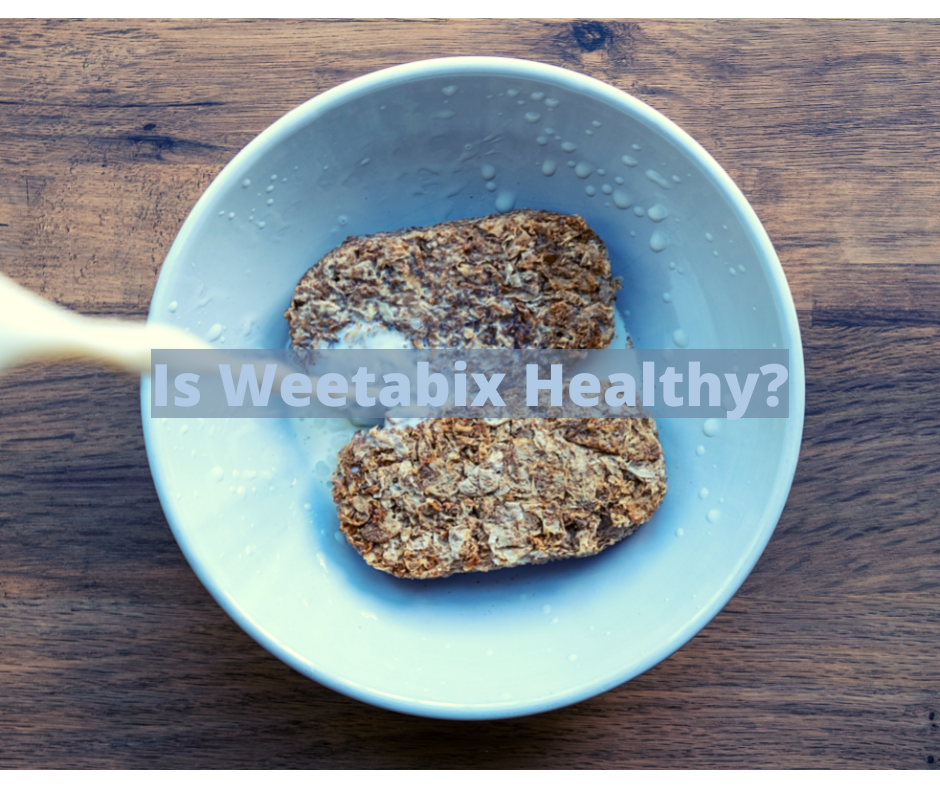
 Vegan3 months ago
Vegan3 months agoIs Weetabix Healthy? 14 Things You Should Know
-
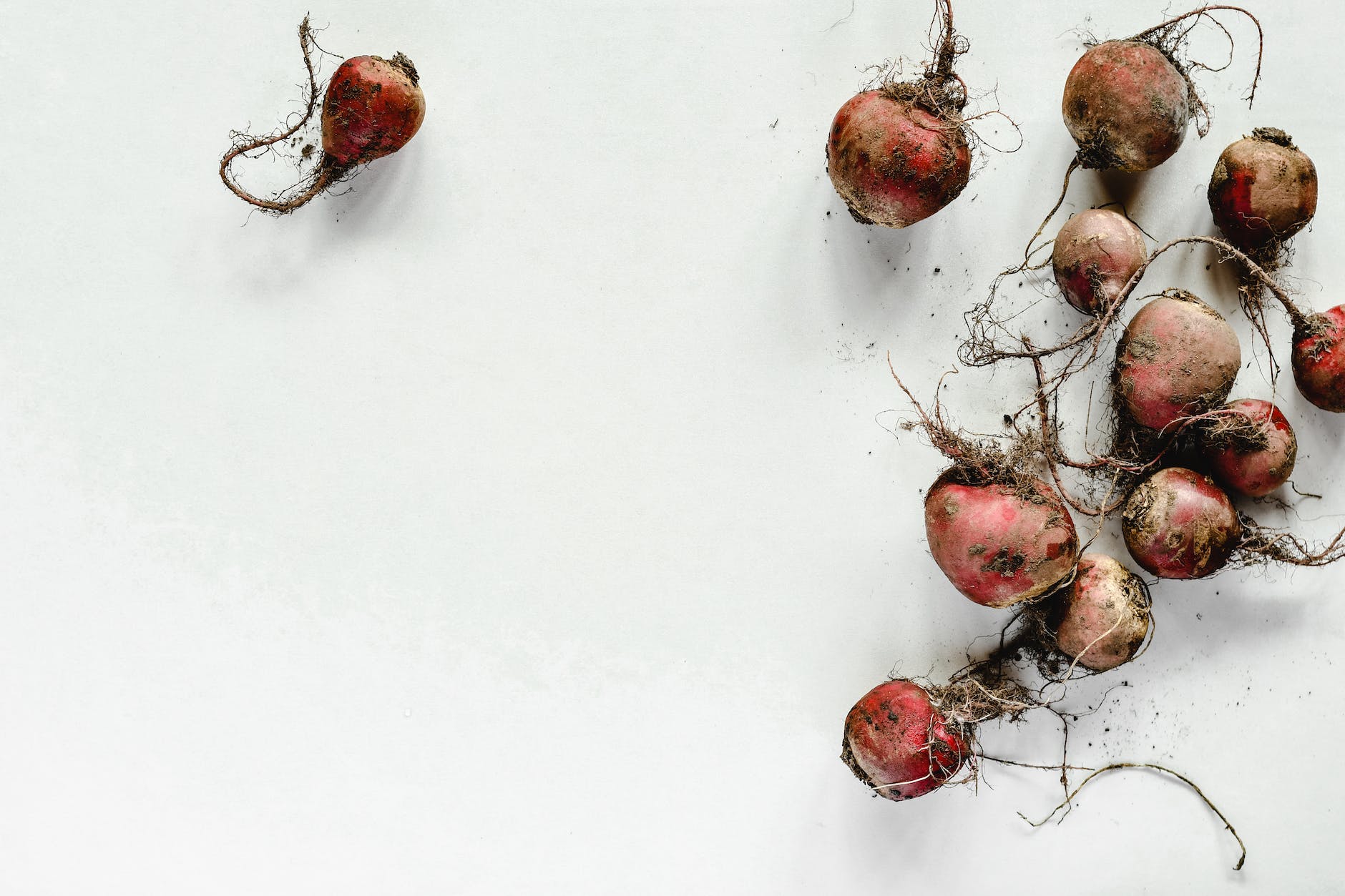
 Raw1 month ago
Raw1 month agoWhy Do Raw Beets Irritate My Throat?
-
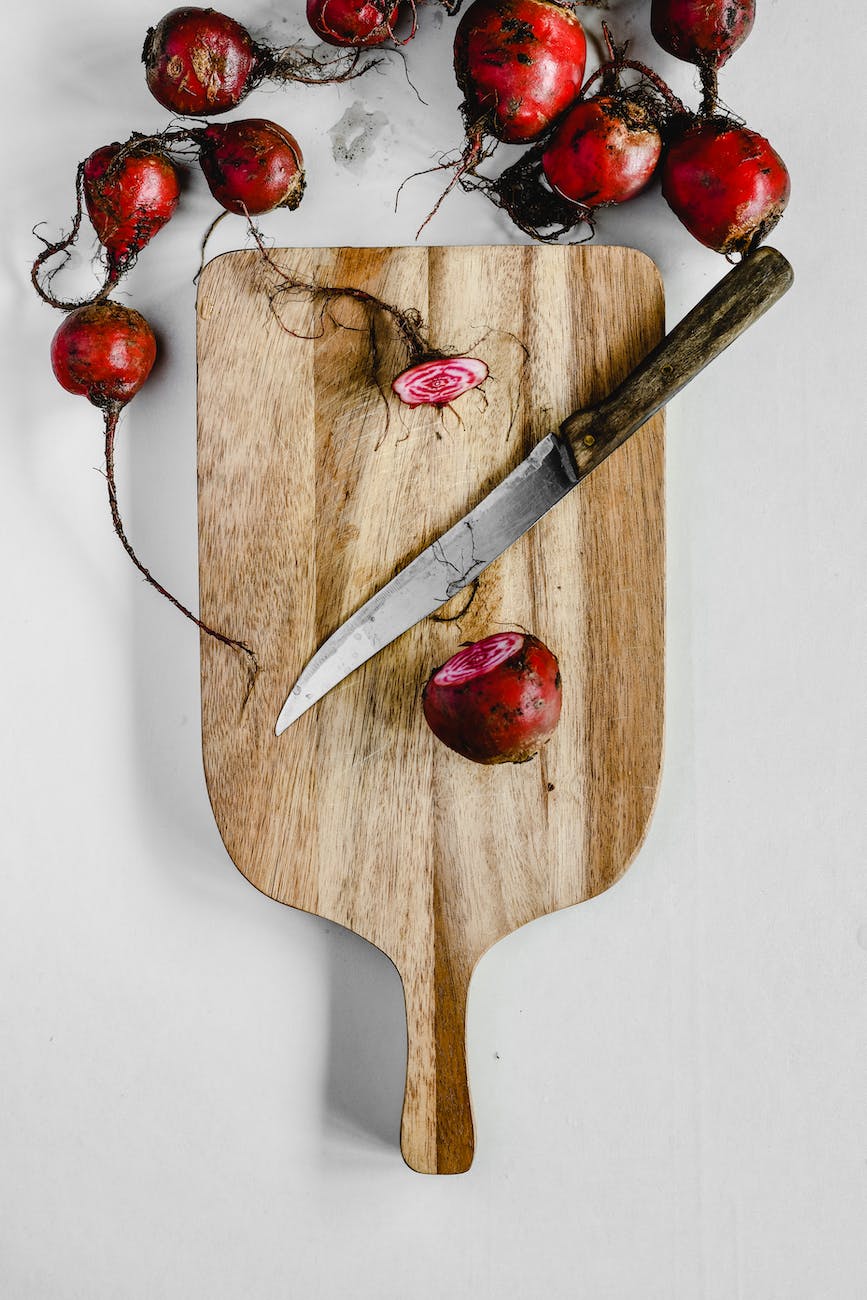
 Beginners Guides1 month ago
Beginners Guides1 month agoIf Beets Are Soft Are They Bad?
-
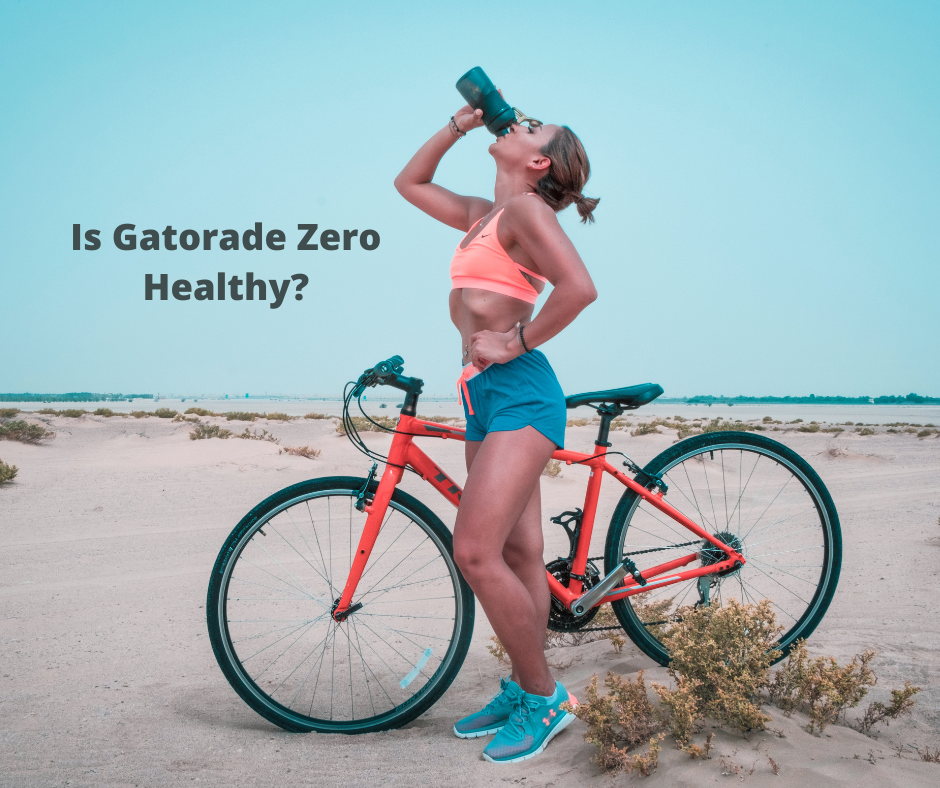
 Vegan3 months ago
Vegan3 months agoIs Gatorade Zero Healthy? 33 Things You Should Know
-

 Juice1 day ago
Juice1 day agoHow To Fix Too Much Lemon Juice In Soup
-
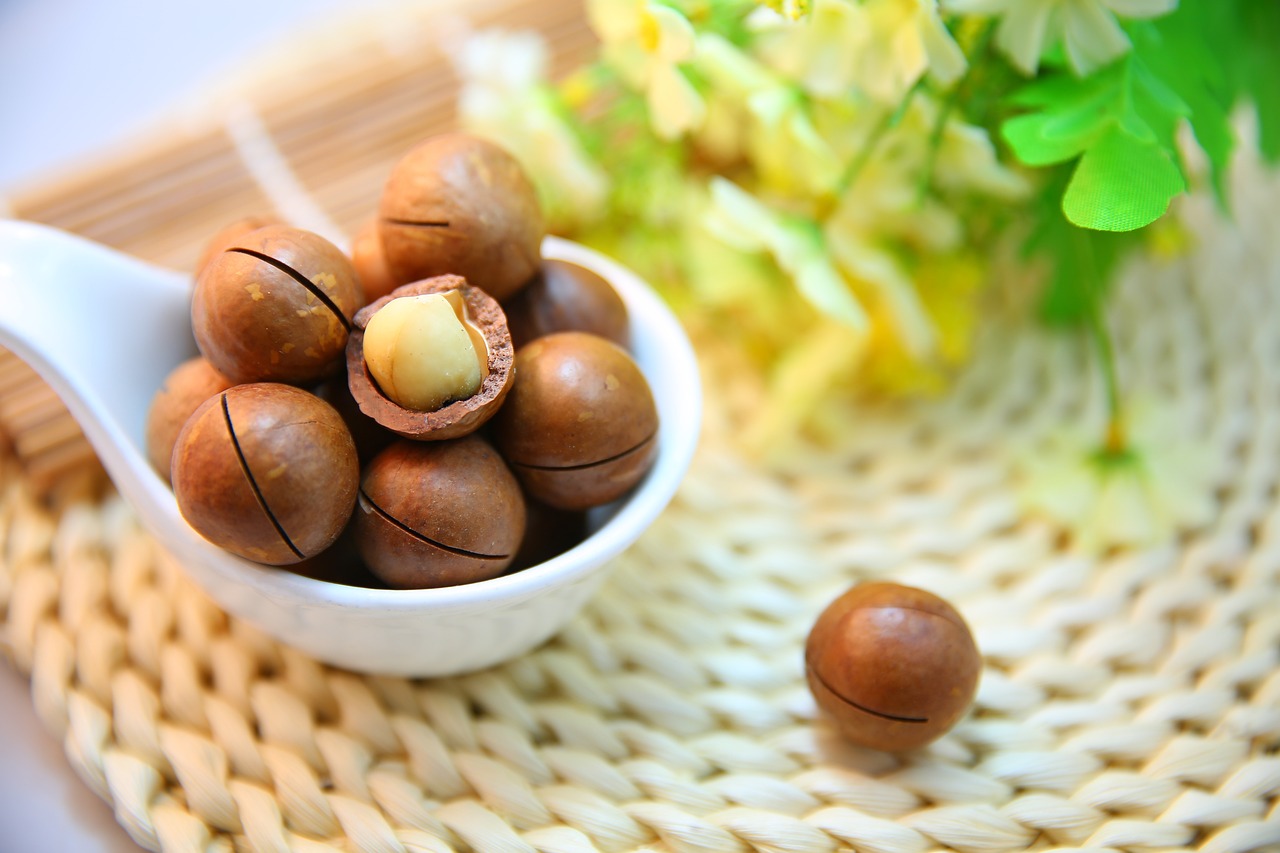
 Raw4 weeks ago
Raw4 weeks agoMacadamia Nuts – Which is Better Nutrition Raw Or Dry Roasted?
-

 Juice3 months ago
Juice3 months agoHow To Make Dmt Vape Juice
-
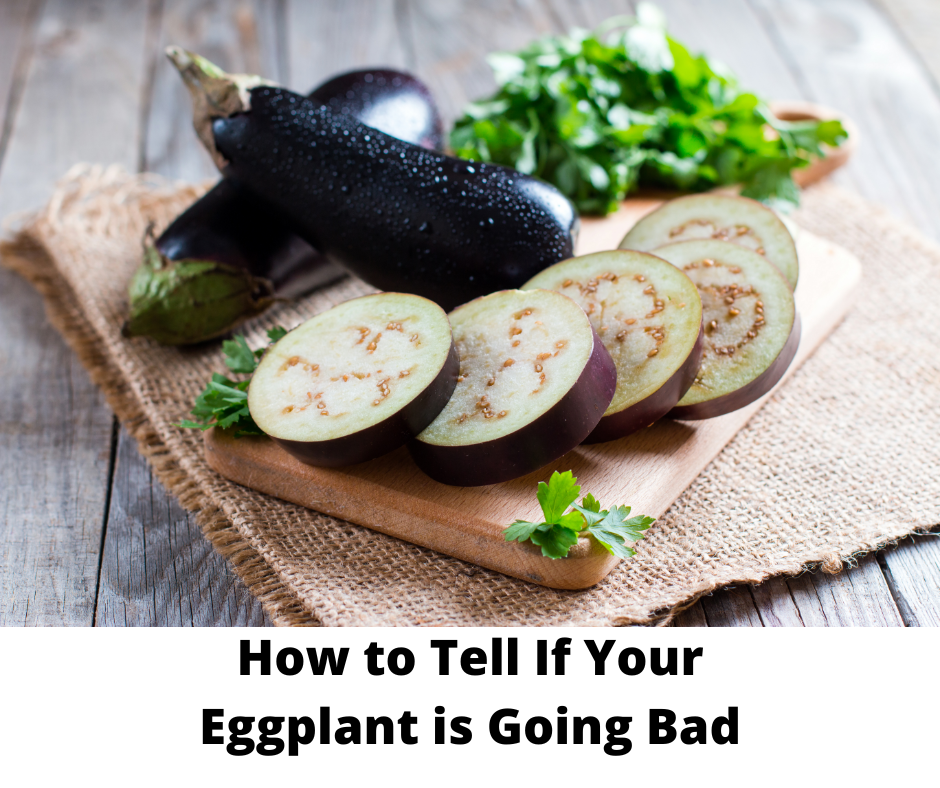
 Vegan3 months ago
Vegan3 months agoHow to Tell If Your Eggplant is Going Bad by Looking at the Color on the Inside
